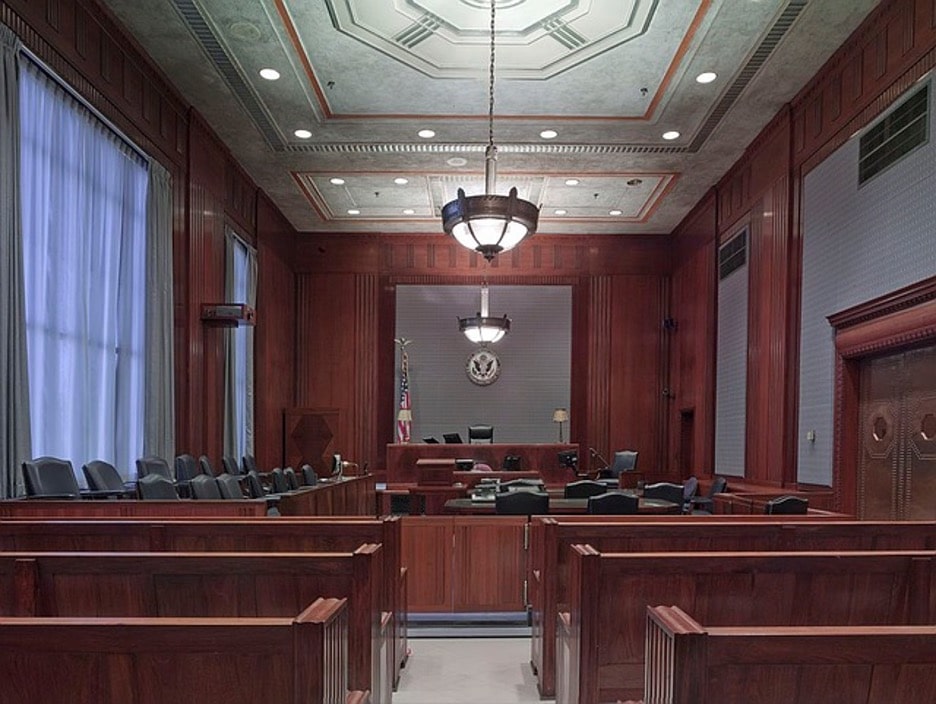

Your criminal record carries tremendous weight in this world. It includes a list of any criminal charges or convictions, as well as other court proceedings, and can impact your ability to get a job, as well as change the consequences of future infractions.
Therefore, you should try to clear your record whenever you can.
Maryland peace orders are serious civil court orders, and they can stay on your record in forever if you don’t take action.
Here’s everything you need to know about what it means to have a Peace Order filed against you, as well as what you can do to have it expunged from your record.

In Maryland, a Peace Order is a court order that prevents one person from contacting or engaging with another person for any reason.
To successful obtain a Peace Order against you, the person filing for it must prove that you have committed an act of abuse, which would include assault, threats that place the person in imminent harm, rape or sexual abuse, stalking, and more.
A Peace Order is very similar to a protective order except that a protective order applies specifically to family and relationships of sexual nature. Peace Orders apply to all other types of relationships. A friend, neighbor or coworker, could file for a Peace Order against you.
From the moment someone petitions for a Peace Order against you, the court mandates that you stop all forms of contact with this person until the case is resolved.
Once you’ve had your hearing in court, if the judge decides to finalize the Peace Order, then this same contact restriction remains in place but there may be additional stipulations. For example, you may be required to attend counseling or mediation, and you may be asked to cover the court costs incurred by the person filing the Peace Order.
Initially, Peace Orders last for a period of six months. After this time, the court will review the case and it can extend the Peace Order for another six months if it deems it necessary.
Once the Peace Order is mandated, you are required by law to follow its stipulations. If you do not and continue to contact the person, or if you violate some other aspect of the order, then you could face criminal charges.
Although Peace Orders are civil charges and therefore do not give you a criminal record, it will remain searchable on public court records forever.
This is only the case, however, if you contest the Peace Order and are unsuccessful. If someone files for a Peace Order against you and you defeat it in court, this will not appear in any public records.
Expungement is the process of removing certain files from the records of various law enforcement agencies. It does not reverse the verdict of the case or your sentence; it just removes most records of it, making it as if it never happened. It’s important to work with an attorney well-versed in the realm of expungement so that they can exhaust all options to remove the Peace Order from your record.
Getting your peace order shielded from your record is possible.
This is exactly what it sounds like: the order is not removed from court records but it is hidden away where most people won’t be able to access it. In fact, it will remain visible only to law enforcement agencies.
Typically, if you contest the case and lose, you will not be eligible to have the order shielded from your record. But this isn’t always the case. Speak with a lawyer to see if this option is available to you.
If someone files for a Peace Order against you, you will be notified by the courts. In this notification, you will receive a hearing date.
At this point, you should contact a lawyer. A Peace Order is not a criminal charge, so you’re not entitled to a public defender. But you should hire a professional to help you navigate from this case.
You won’t just be notified, you will be served
The first decision is whether or not to “consent” to or “contest” the order. If you consent, it goes into effect immediately and will last on your Maryland record forever.
If you “consent”, the judge makes no finding of abuse. It is a compromise. It will stay on casesearch until it is shielded after the period of the peace order runs. But you still need to file a petition to shield after a consent order runs it’s course.
If you “contest” it, you must still avoid all contact with the filing party and then attend your hearing. Once a decision is reached, you will likely be given additional instructions by the judge.
After the decision is reached, you will have 30 days to appeal it. Again, work with your lawyer to determine the best course of action.
If someone has filed a Peace Order against you and you’re in the process of contesting it, or if you already had one, get in touch with our office today. Our experienced team of lawyers will look at your case and provide you with guidance to help you make the most of this situation.